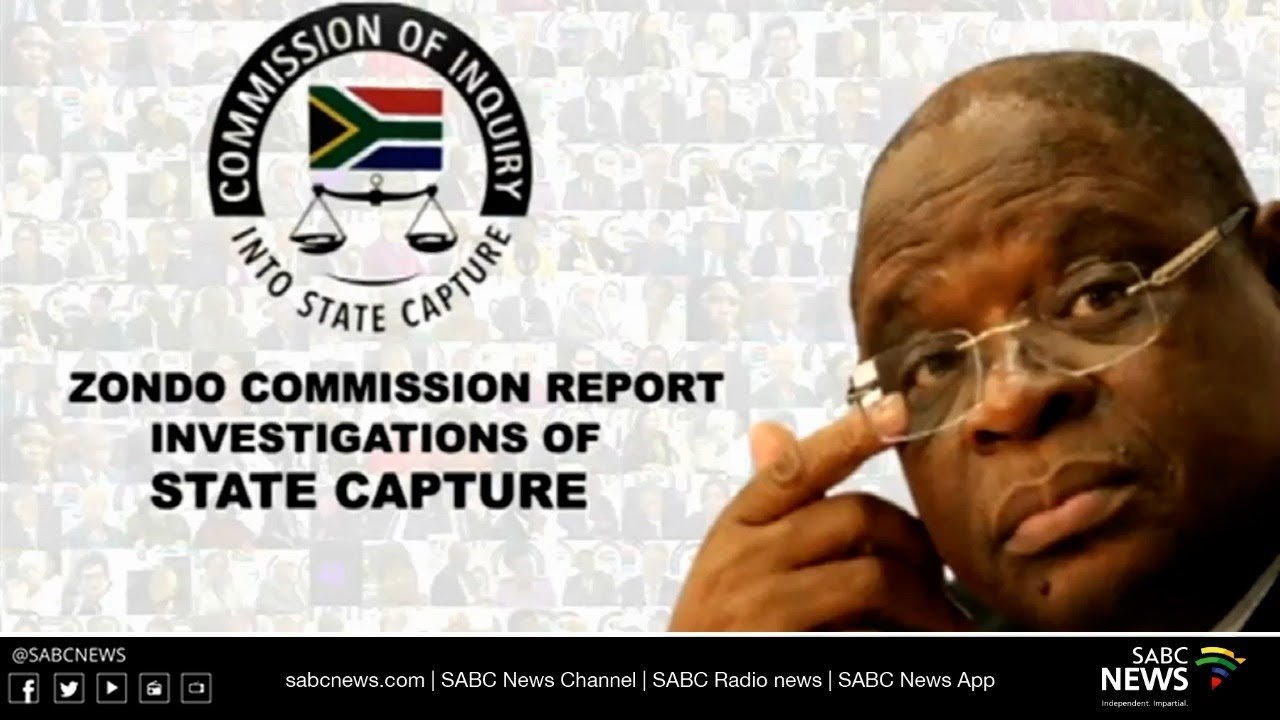Zondo Report Highlights Whistleblowers’ Role in Revealing South African Corruption
The initial conclusions of South Africa’s Zondo Commission, published in an 874-page report, have found that South Africa's former president Jacob Zuma used his nine-year administration to enrich himself and his allies in politics and business through runaway corruption and a process of state capture.
The long-running public inquiry, named for its chair Judge Raymond Zondo, has concluded that Zuma tied himself to the Indian-born Gupta family to advance their own interests. This was accomplished by firing key managers from government departments and state enterprises and replacing them with officials directly loyal to the government.
This process of state capture ensnared key state agencies including the South African Revenue Service (SARS) and saw some of Zuma's family, including his son, hired by the Guptas in senior positions. The Gupta family who moved to South Africa in 1993 and fled after Zuma was removed from office, owned a number of companies in different sectors that received lucrative contracts from government departments and state-owned companies.
The first part of the Zondo Commission’s conclusions, published on 4 January 2022 recognise the major role played by whistleblowers in revealing State Capture and recommend added protections for them:
“Recent events in South Africa which will be well known to every reader make it the highest priority that a bona fide whistle blower who reports wrongdoing should receive, as a matter of urgency, effective protection from retaliation.”
In light of the experiences of the South African whistleblowers honoured at Blueprint’s 2021 Whistleblower Prizes, better protections are urgently required. However, the Platform to Protect Whistleblowers in Africa (PPLAAF) has said that the Zondo proposals do not go far enough.
“South African whistleblowers played an important role in revealing State Capture, at a huge personal cost,” said PPLAAF legal counsel Zanele Mbuyisa. “To avoid future suffering and to commend those fighting for the Rule of law, we must insist South African whistleblower protections be improved and better enforced.”
The Zondo Commission recommends creating a state agency to deal with whistleblower reports about public procurement and establishing a system of rewards but PPLAAF said those “will not suffice to plainly protect and obtain justice for whistleblowers: they will still leave too much room for whistleblowers not to be taken seriously, and will not deter retaliators as strongly as they should.”
“Whistleblowers, working in the light or in the shade, are true heroes of the state capture investigations,” said William Bourdon, PPLAAF’s Chairman. “While the South African authorities’ investigation on the activities of the former regime should be commended, true justice will only be achieved when whistleblowers will not suffer in vain for South Africa any more,” he said.
Valuing public interest volunteers
Whistleblower Babita Deokaran, honoured at this year’s Blueprint awards, was brutally murdered as a key witness into major financial corruption and others supported by PPLAAF in recent years have faced endless legal retaliation, public attacks, and financial loss.
The findings came as no surprise to Ari Danikas, a former South African police officer police reserve officer in South Africa who fled to Greece after blowing the whistle on alleged extrajudicial killings by police.
Appearing online as part of a news conference in South Africa called Whistleblowers for Change, he said that, “In South Africa we need to recognize the value of journalists and NGOs that work together to amplify the suppressed voice of whistleblowers.”
Danikas, himself the recipient of Blueprint’s Special Recognition Award in 2016, said those retaliated against for revealing wrongdoing, including losing their jobs and facing SLAPP suits intended to drain their finances and general welfare, should not be allowed to suffer losses.
“I'd like to see a whistleblower as a volunteer, a person that comes out and volunteers information about corruption … we don't want to get paid for it. We do, however, want to be compensated for any losses of income, any retaliation,” he said.
He later told Blueprint that, “My experience has taught me that if there is no mechanisms in place within a country to support and protect whistleblowers who come forward to report wrongdoing, then don’t!”
More Zondo Conclusions to Come
Zondo found that the South African Revenue Services (SARS), once highly-regarded, had a government-compliant leadership put in place ”because its investigatory and enforcement capacity was a hurdle to people involved in organized crime,” and that more than 2,000 top staffers were bullied into leaving the organsation.
The public inquiry, which began in 2018, found there were patterns of abuse at every stage of public procurement and that governance had collapsed at state companies.
South African Airways had the same fate as SARS, the report said, adding that it had become “an entity racked by corruption and fraud" and that the chairperson, Dude Myeni was being protected by state intelligence agents.
Justice Zondo accused Zuma of not cooperating in the probe "because he knew there were questions that would be put to him which he would not have been able to answer. This is the antithesis of accountability."
Zuma was imprisoned in July 2021 for contempt of court, released on medical parole in September that year and ordered back to jail by the High Court in December. Zuma has since appealed this decision and remains on parole.
The Zondo Commission has no prosecutorial powers but an amended regulation passed by President Cyril Ramaphosa in 2021 allows law enforcement agencies to access information gained at the commission.
The National Prosecuting Authority has been trying to extradite the Gupta brothers, Atul, Rajesh and Tony but their whereabouts has been unknown since they went to the United Arab Emirates. Two further reports from the Zondo Commission are due before the end of February.

